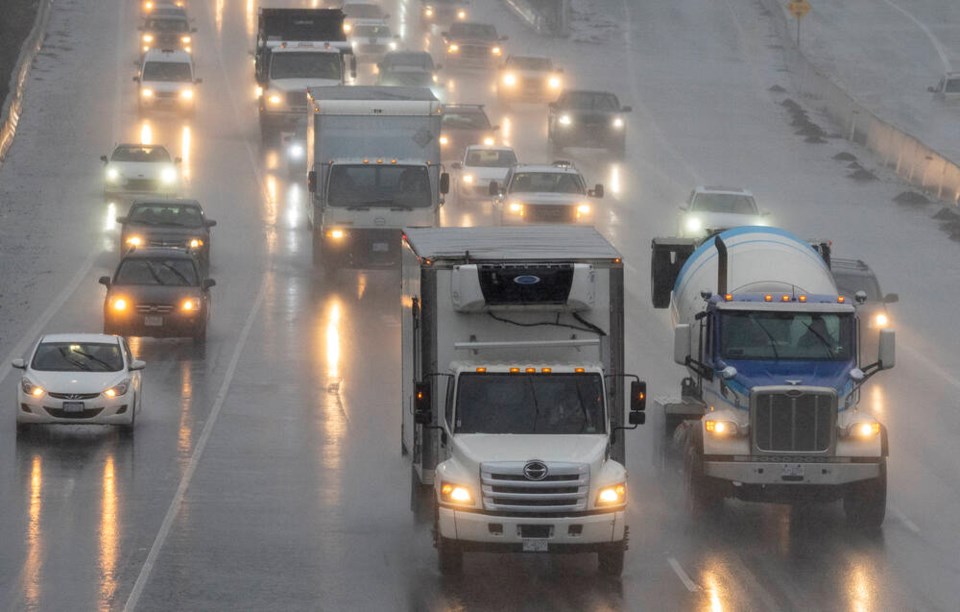Any driver out there has seen road behaviours ranging from the mildly annoying to the out of this world. I usually have one or two grievances which I witness each week and then write about the problems. But this time I wanted to look into the wider complaints which other B.C. drivers experience in their travels.
While we’re often proud of our stunning landscapes, great climate, and an often more laid back culture, one thing we’re decidedly less chill about is inconsiderate driving.
Surveys across the province show that British Columbians are fed up with poor driving habits. From the congested arteries of the lower mainland to the winding rural roads of the interior, the frustrations are real and growing, at least according to my inbox.
So here we go again, another missive from me about not signalling. But that’s at the top of the survey list. A staggering 82% of B.C. drivers report witnessing this discourteous act in the past three months according to a 2023 Ipsos survey.
Whether it’s a last-minute lane change or an unexpected right turn off a main road, failing to signal creates confusion, frustration, and danger. It’s not just impolite — it’s illegal. And yet, many drivers act as if their blinker fluid has run dry.
Close behind, literally, is tailgating according to Ipsos. Approximately 73% of drivers say they’ve experienced someone following far too closely. Why are you on my bumper when the traffic is heavy and there’s literally nowhere to go?
Tailgating is one of those aggressive driving habits that instantly spikes tension. It’s not just annoying, it reduces reaction time and can easily lead to rear-end collisions. On wet or icy roads, that buffer zone can mean the difference between a safe stop and a nasty crash.
Merge lanes and zipper merges are designed to keep traffic flowing smoothly, but 63% of B.C. drivers report others failing to let them in. Whether it’s a deliberate “nope” or an oblivious acceleration, the effect is the same: congestion, tension and, sometimes, accidents.
This is one I don’t see myself however. Generally, I find people courteously allow others to merge most times but, according to Ipsos, I’m in the minority on this one.
But there’s little doubt that traffic actually flows better when drivers take turns merging, so what’s this game of chicken all about?
About 48% of you told Ipsos you’ve been cut off — often at high speeds or in congested traffic. While sometimes it’s a simple misjudgment, in other cases, it’s an aggressive move that forces other drivers to slam on their brakes.
Cutting people off without checking blind spots or leaving enough space is reckless and signals a lack of respect for others on the road.
I’m seeing, or hearing, it less these days but around a quarter of drivers say they’ve been on the receiving end of an aggressive honk. Honking is supposed to be a safety tool, not a weapon for expressing road rage. But for some, it’s become a reflex for venting frustration. I’m sorry I signalled, stopped, then tried to reverse into a parking space. Yes you had to change lanes (or wait) but that’s no reason to get on the horn.
In tight city traffic or during rush hour, excessive honking only adds to the chaos and often escalates tensions unnecessarily.
Has courtesy on the road declined? Very much so according to people emailing me. According to that Ipsos survey, 49% of B.C. drivers believe that driver courtesy has declined over the past five years. In the Lower Mainland, that number jumps to 55%.
While some of that perception may be tied to urban growth, increased traffic, and general societal stress, simple acts like waving a thank you, letting someone merge, or not blocking an intersection make a big difference in everyone’s day.
Of course we are often our own worst enemies in the courtesy world. A 2022 ICBC survey revealed that 42% of drivers admitted to using their phone at least once out of every 10 trips. This is despite 93% acknowledging that texting while driving is highly risky.
The consequences are dire. Distracted driving is responsible for more than one in four fatal crashes in B.C., according to ICBC, claiming an average of 76 lives annually.
What’s encouraging is that these are fixable problems.
So, one more time: signal your turns; leave space; let people merge and; stay off your phone. Above all, bring a little patience to the road, especially during B.C.’s summer tourism season, when visitors and extra traffic can make even the calmest driver a little edgy.
Courtesy is always cheaper than a ticket, a tow, or a visit to ICBC.



